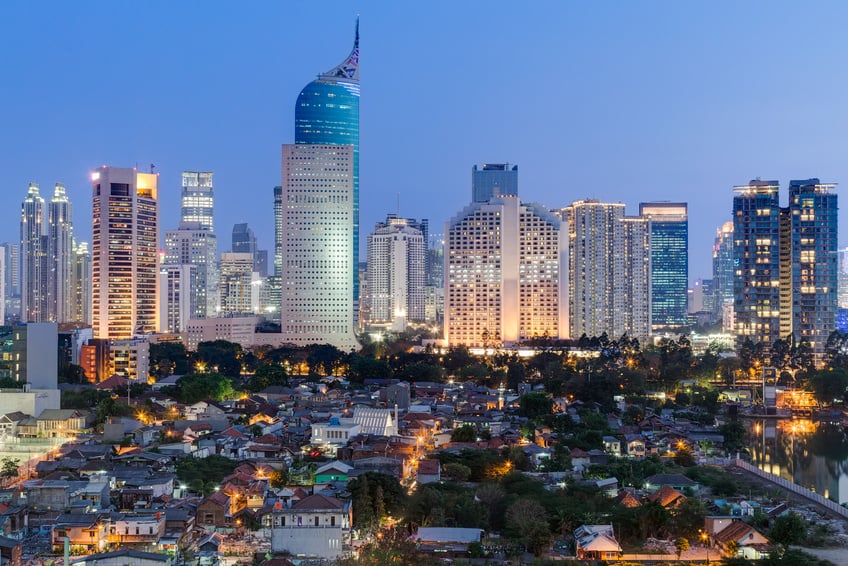In the spirit of Bank Indonesia’s Payment System 2025 Visions that were introduced in May 2019, and in conjunction with the G20 Roadmap for Enhancing Cross-Border Payments, Bank Indonesia has agreed on cooperating with the Japanese Ministry of Economy, Trade and Industry to enable consumers and merchants in both countries to make and accept instant cross-border QR payments. The memorandum of understanding for this cooperation was signed on 9 December 2022 in Tokyo.
KPPU, the Indonesian competition authority, issued 15 decisions this year, a decline from 23 decisions in 2021. Late merger filing cases still account for the majority of decisions, followed by small and micro enterprises partnership cases. The increasing number of SME partnership cases suggests closer scrutiny by KPPU of partnerships between big and medium corporations and SMEs, which is in line with KPPU’s priorities as the pandemic subsides.
On 15 December 2022, the House of Representatives passed the draft omnibus law on the financial sector which is referred to as the “Financial Sector Development and Reinforcement (Pengembangan dan Penguatan Sektor Keuangan) Law” (“P2SK Law”). The draft law is currently under an enactment process with its effective date to be further announced. The P2SK Law, among other things, stipulates the reconfiguration of supervisory powers among the different regulators over a number of sectors (including the financial technology and digital financial assets sectors) that had been overlapping and led to regulatory gaps.
This client alert discusses the new Indonesian criminal code, which in a few years will replace the existing criminal code. This alert outlines the key features of the new criminal code, and is the first of a series of client alerts on the new Indonesian criminal code.
The Minister of Health issued MOH Regulation No. 24 of 2022 on Medical Records, which revokes MOH Regulation No. 269/MENKES/PER/III/2008, on the same topic on 31 August this year. The promulgation of MOH Regulation 24 underlines the digital transformation in Indonesia’s healthcare sector, as the regulation sets out detailed provisions on implementing the new electronic medical records provisions for healthcare facilities. The regulation aims to serve as a new legal framework for digital-based and integrated medical records.
The Digital Markets Act (EU Regulation 2022/1925) came into force on 1 November 2022, with the aim of promoting fair business practices in the digital industry in Europe. While the DMA itself may have no direct implication for Indonesia, the KPPU – Indonesia’s competition authority – often refers to developments and thought-leadership on enforcement from other prominent jurisdictions, including the EU. Digital businesses operating in Indonesia may use the DMA as a navigation tool, and clients may find the practical risk mitigation tips useful.
Indonesia’s Consumer Protection Law generally takes a light-handed approach to protection of consumer interests. It generally seeks to lay out the principles for protecting consumers’ interests, leaving detailed regulations to the regulators and to industry self-governance. However, it does list specific types of clauses that are prohibited. Anyone who includes prohibited clauses in an agreement would be subject to the threat of criminal penalty of up to five years imprisonment or a fine of up to IDR 2 billion (around USD 130,000). Given these risks, it is crucial for any consumer-facing business to understand what types of clauses are actually prohibited and how it can ensure that it is compliant with these prohibitions.
Detecting rigged bids once dominated the workload of KPPU, and while that may no longer be the case, the number of bid-rigging cases being handled by the KPPU at any given time remains relatively high. Recent enforcement cases have focused on construction and public procurement projects. Through these cases, KPPU has proven that it is adept in the area of technology – scrutinizing metadata and IP addresses of defendants to uncover evidence of collusion. Colluding to rig bids is an Article 22 violation under the Indonesian Competition Law, for which KPPU may impose a fine of IDR 1 billion or more.
Companies with effective Antitrust & Competition Compliance Programs may benefit from more lenient sanctions if KPPU finds an infringement in the future. KPPU Regulation No. 1 of 2022 on ACCP was issued earlier this year to provide further guidance for the implementation of Article 15(a) of Government Regulation No. 44 of 2021. To receive the compliance credit, it is important to ensure your ACCP meets the requirements of the KPPU Regulation and then secure the KPPU certification (a stipulation that will be valid for five years, and is renewable).
The draft of the Indonesian Personal Data Protection Law was approved to become law by the Indonesian Parliament (Dewan Perwakilan Rakyat Republik Indonesia) on 20 September 2022. With this approval, we are nearing the end of the process of an ambitious piece of legislation, which took several years to get approval. For several years, Indonesia has only relied on various diverse regulations that contain privacy provisions without one comprehensive umbrella law on personal data protection.


